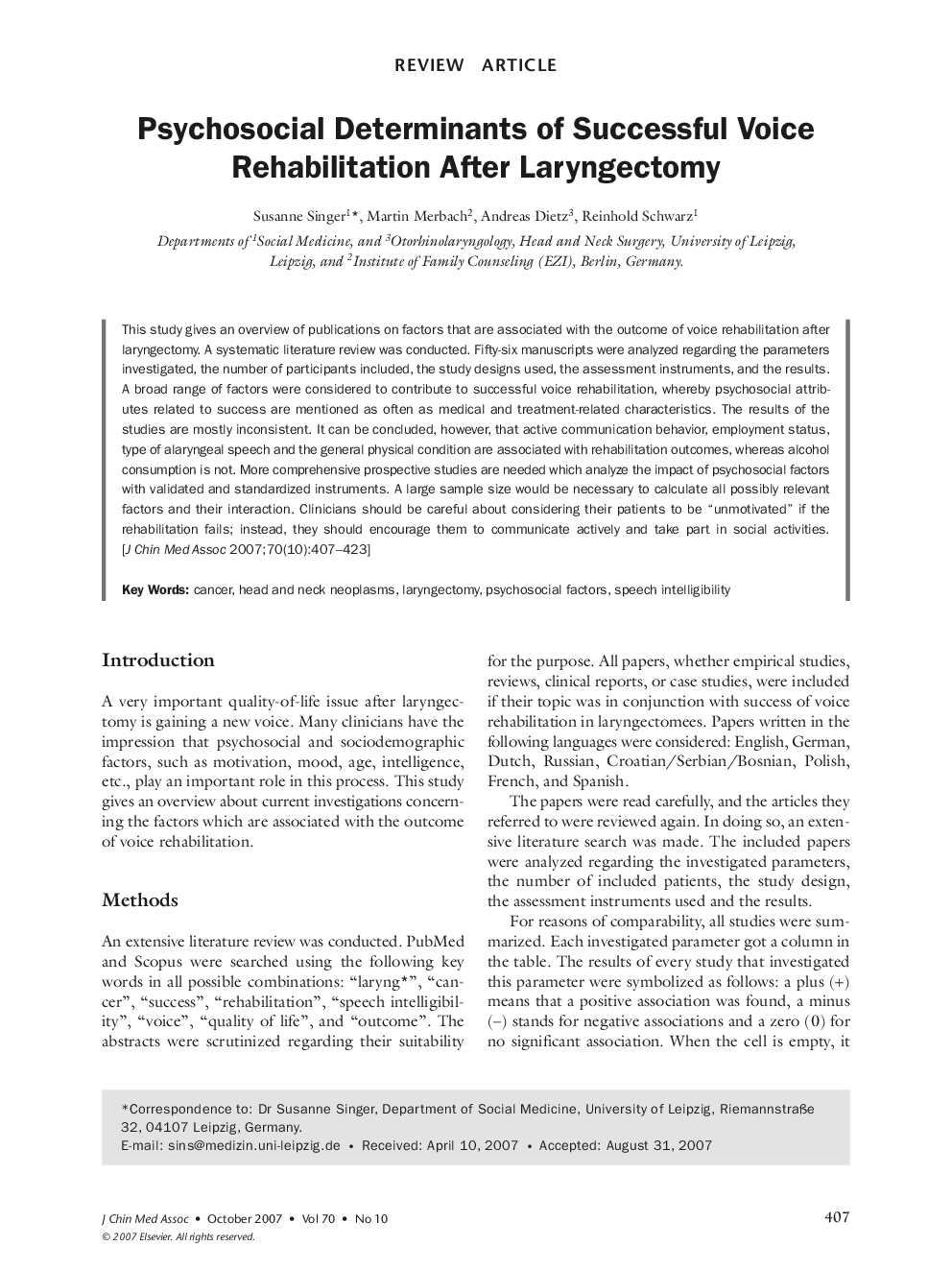| Article ID | Journal | Published Year | Pages | File Type |
|---|---|---|---|---|
| 3477466 | Journal of the Chinese Medical Association | 2007 | 17 Pages |
This study gives an overview of publications on factors that are associated with the outcome of voice rehabilitation after laryngectomy. A systematic literature review was conducted. Fifty-six manuscripts were analyzed regarding the parameters investigated, the number of participants included, the study designs used, the assessment instruments, and the results. A broad range of factors were considered to contribute to successful voice rehabilitation, whereby psychosocial attributes related to success are mentioned as often as medical and treatment-related characteristics. The results of the studies are mostly inconsistent. It can be concluded, however, that active communication behavior, employment status, type of alaryngeal speech and the general physical condition are associated with rehabilitation outcomes, whereas alcohol consumption is not. More comprehensive prospective studies are needed which analyze the impact of psychosocial factors with validated and standardized instruments. A large sample size would be necessary to calculate all possibly relevant factors and their interaction. Clinicians should be careful about considering their patients to be “unmotivated” if the rehabilitation fails; instead, they should encourage them to communicate actively and take part in social activities.
